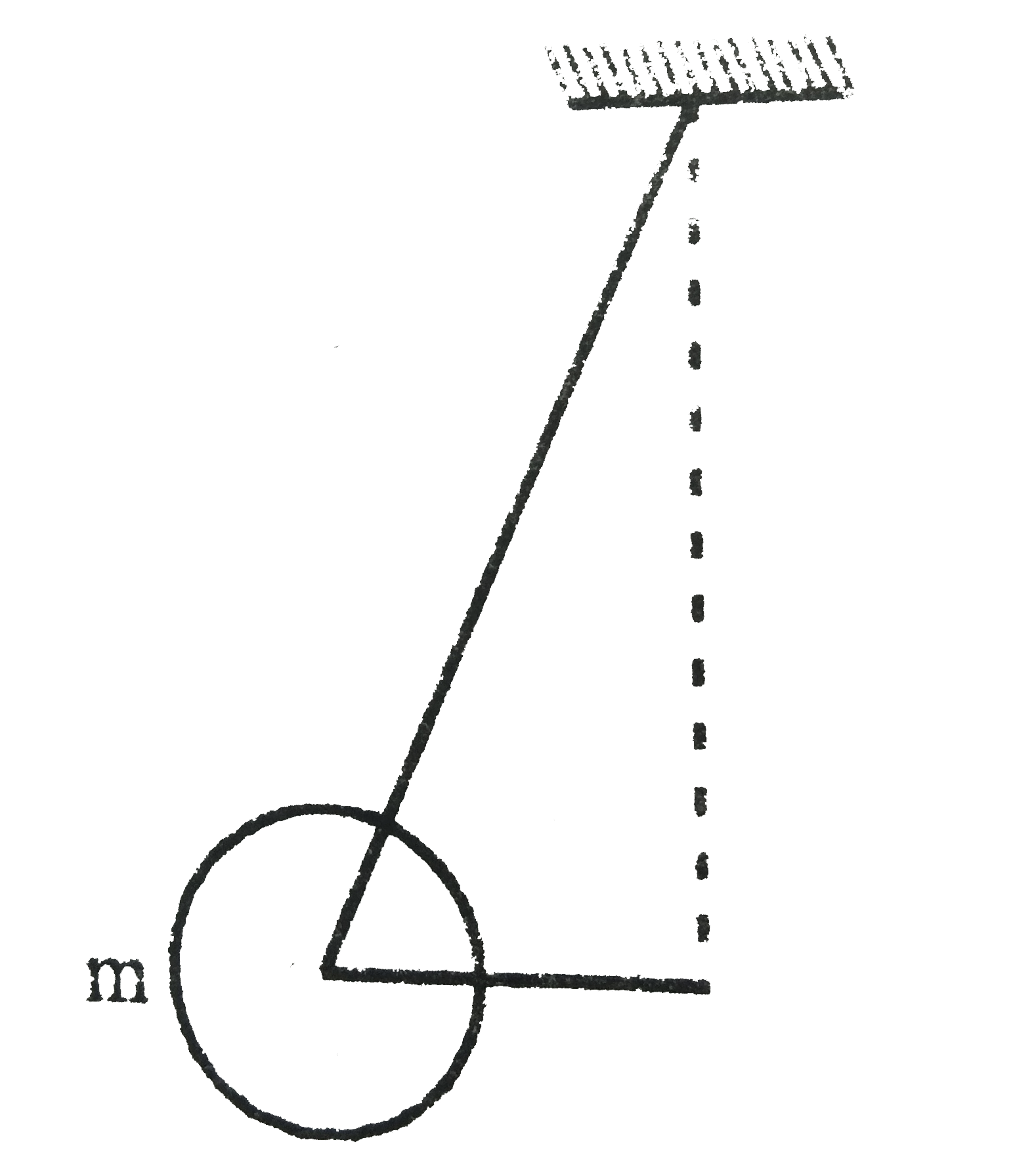Integrate the following function
(a) ∫2o2tdt (b) ∫21(2t−4)dt Solution in Gujrati
The correct Answer is:B
For equilibrium, net resultant for must be zero. These forces form a closed traingle such that
F1~F2≤F3≤F1+F2⇒2N≤F3≤8N
Topper's Solved these Questions
- BASIC MATHSBOOK - ALLEN CHAPTER - BASIC MATHSEXERCISE - Exercise-02
53 Videos
- BASIC MATHSBOOK - ALLEN CHAPTER - BASIC MATHSEXERCISE - Exersice-03
7 Videos
- AIIMS 2019BOOK - ALLEN CHAPTER - AIIMS 2019EXERCISE - PHYSICS
39 Videos
- CIRCULAR MOTIONBOOK - ALLEN CHAPTER - CIRCULAR MOTIONEXERCISE - EXERCISE (J-A)
6 Videos
Similar Questions
Two vectors →A and →B are such that →A+→B=→A−→B. Then
View SolutionThe direction of the angular velocity vector is along
View SolutionA simple pendulum executing SHM in a straight line has zero velocity at 'A' and 'B' whose distances form 'O' in the same line OAB are 'a' and 'b'. If the velocity half wat between them is 'v' then its time period is
View SolutionA ball of mass (m)0.5kg is attached to the end of a string having length (L)0.5m. The ball is rotated on a horizontal circular path about vertical axis. The maximum tension that the string can bear is 324N. The maximum possible value of angular velocity of ball (radian/s) is -
 .
.
View Solutionint(dt)/(sqrt(3t-2t^(2)))
View Solutionint(dt)/(sqrt(3t-2t^(2)))
View SolutionIntegrate the following int(2t-4)^(-4)dt=
View SolutionIntegrate the following function (a) int_(o)^(2) 2t dt (b) int _(pi//6)^(pi//3) sin x dx (c) int _(4)^(10)(dx)/(x) (d) int _(o)^(pi) cos x dx (e) int _(1) ^(2)(2t -4) dt
View SolutionIntegrate the following: int(2t-4)^(-4)dt
View SolutionIntegrate the following : int(sin4t+2t)dt
View SolutionEvaluate indefinite integration.
(i) x=∫dt (ii) ∫tdt (iii) x=∫(2t)dt (iv) x=∫(t2)dt
(v) x=∫(−2t3)dt
View Solution∫dt√3t−2t2
View SolutionThe acute angle between F1(x)=∫x2(2t−5)dtandF2(x)=∫x02tdt, is , if tanθ=ab where a, b are co-prime numbers then b – a is:
View Solutionयदि f:R→R एक अवकलनीय फलन है तथा f(1)=4,तो limx→1∫f(x)42t(x−1)dt का मान है
View Solution∫dt√3t−2t2
View SolutionObtain the following integrals :
∫1√3t−2t2dt
View Solution
